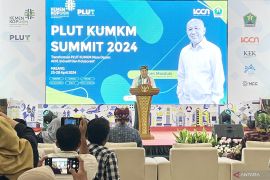BOSTON, Sept. 27, 2012 (ANTARA/PRNewswire) -- China will continue to see rising wood pulp production along with rising imports of wood chips to make that pulp, according to 2012 The China Pulp Market: A Comprehensive Analysis and Outlook, a new study release today by RISI the leading information provider for the global forest products industry. The study also concludes that large-scale papergrade market pulp production in China is not a sustainable business over time.
(Logo: http://photos.prnewswire.com/prnh/20080521/NEW122LOGO )
A steady upward trend in wood growing costs in southern China will keep China's pulp producers purchasing ever-increasing volumes of wood chips from greater distances, including North and South America, at very high costs.
"Wood costs in China are already almost the highest in the world, and account for as much as 70% of cash costs for bleached hardwood kraft (BHK) market pulp producers in China. Market BHK producers in China have some of the newest and largest pulp lines in the world, and yet are still the high cost producers, even in their own market," said Kurt Schafer, VP of Pulp & Recovered Paper at RISI.
"Our research indicates that wood growing costs in southern China will probably outpace growing costs in Brazil by a wide margin over the next decade, and this suggests that large-scale papergrade market pulp production in China is not a sustainable business over time," continued Schaefer.
2012 The China Pulp Market: A Comprehensive Analysis and Outlook reports on the real size of the China pulp market, examines Chinese pulp capacity, identifies the different end-uses that drive demand, and discovers the factors that may cause closures in the medium-term.
The study is two years in the making and was researched and written by RISI's new team of on-the-ground Chinese pulp and paper industry experts, making it the most comprehensive study available on the topic.
2012 The China Pulp Market: A Comprehensive Analysis and Outlook includes:
* 10 year forecast of pulp demand, production, consumption, and imports
* Revised capacity and production numbers and forecasts, based on detailed survey work
* Profiles of key buyers, sellers and traders
* Detailed analysis of import data---company-level import data by pulp grade
* Analysis of policy trends and the new Five Year Plan
* Analysis and forecast of wood growing costs and pulp production costs in China
o How much will China be able to pay for imported wood?
* Comparison of wood growing costs in China to Brazil
* New independent estimates of pulp capacity in China, including nonwood pulp capacity
o These estimates differ significantly, in some cases, from official Chinese data
* Overview of non-wood pulp in China including future market potential
For more information on the study, visit www.risi.com/chinapulp
About RISI (www.risi.com)
Owned by UBM plc, which is listed on the London Stock Exchange, RISI is the leading information provider for the global forest products industry. The company works with clients in the pulp and paper, wood products, timber, biomass, tissue, nonwovens, printing and publishing industries to help them make better decisions.
Headquartered in Boston, MA, RISI operates additional offices throughout North and South America, Europe and Asia.
About UBM plc (www.ubm.com)
UBM plc is a leading global company. We inform markets and bring the world's buyers and sellers together at events, online, in print and provide them with the information they need to do business successfully. We focus on serving professional commercial communities, from doctors to game developers, from journalists to jewellery traders, from farmers to pharmacists around the world. Our 6,000 staff in more than 30 countries are organised into specialist teams that serve these communities, helping them to do business and their markets to work effectively and efficiently.
For Press Enquiries, please contact:
Thom Smith
Director of Marketing
O: +1-781-734-8990
E: tsmith@risi.com
Editor: PR Wire
Copyright © ANTARA 2012











